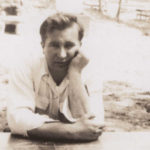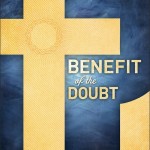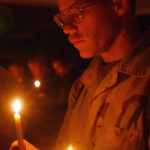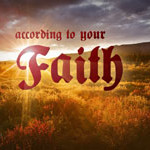We run our website the way we wished the whole internet worked: we provide high quality original content with no ads. We are funded solely by your direct support. Please consider supporting this project.

Practicing Faith
Faith is the substantiating of things hoped for and the conviction of things not yet seen, based on Hebrews 11:1 as I explained in this post. Practically speaking, this means that you become aware of what you are representing in your imagination as you pray, and that you take care to align it with what you believe to be God’s will.
When you pray for someone who is sick or suffering, imagine God’s will being done “on earth as it is in heaven” by envisioning the person being healed. As you align your vision with God’s vision, you’ll find your heart gets aligned with God’s heart as you long to see his will come to pass and as you partner with God by pushing in that direction in passionate prayer.
When you pray for a couple in a bad marriage, ask the Holy Spirit to help you concretely envision the marriage being restored and encourage this couple to do the same.
When you pray for someone in bondage to something, ask the Spirit to give you a faith-filled vision of that person being set free.
When you pray a blessing on your enemies, ask God to help you imaginatively represent his love flowing over them, to see them being freed from their anger, their hostility, their pettiness, or whatever bondage they may be under.
Jesus said, “According to you faith it will be done” (Matt 9:29). It is magical to think this hyperbolic teaching guarantees we’ll receive whatever it is we’re exercising faith for. There are always multiple variables that affect whatever comes to pass (see post). However, with these words Jesus is emphasizing that the faith we practice day in and day out is the most important of them.
You need not be 100% certain that a belief is true or that something you believe to be God’s will is going to come to pass in order to have faith. You need merely be confident enough to commit to a course of action. And the first act of faith we take is the act of seeing in our imagination that for which we are praying. Envision the world as if your belief is true, and then experience the conviction that motivates you to pray for and act in the world as if your belief is true. In this way, we are living as faithful disciples.
—Adapted from Seeing is Believing, pages 215-217
Photo credit: Thomas Hawk via VisualHunt / CC BY-NC
Category: General
Tags: Faith, Imagination, Prayer
Related Reading

Podcast: Can a Person Come Back to God if They Lose Their Faith?
Greg considers the nature of faith and unbelief and offers some enlightening insight that may surprise you. http://traffic.libsyn.com/askgregboyd/Episode_0316.mp3

Benefit of the Doubt Is Here!
Benefit of the Doubt is finally here and you should definitely get yourself a copy! Frank Viola interviewed Greg about the book recently and you can read it over on Frank’s blog Beyond Evangelical. In fact, Frank is so enthusiastic about the book that he added it to his Best 100 Christian Books Ever Written list. Wow. Also,…

Do My Prayers Matter?
We talked about the risk God took in creating the world as he did (see previous post). The choices made by humans and spiritual agents influence what transpires in history. This sets the stage for an understanding of how our prayers have influence on what actually happens in the world. To make this point, I…

Drumming, Openness, Providence and Whatever
Here’s one of four arguments I offer in this essay against the view that an omniscient God must by definition know the future exhaustively as a domain of eternally settled facts.

According to Your Faith
In his sermon from this last weekend, Greg deals with Scriptures that have created some misunderstandings regarding the nature of faith. He shows how we can replace the gimmickry we normally associate with faith with something much more beautiful and lasting. You can download the sermon here. How have Greg’s thoughts on faith impacted the…

Court-of-Law Theology: How It Falls Short
Courtney “Coco” Mault via Compfight Last week, we introduced a way of talking about theology with concentric circles. This approach is distinct from the common Western model of theology that depends upon a court-of-law framework. The following is an excerpt from Greg’s book Benefit of the Doubt regarding this: ____________________________ Within the legal strand of…
